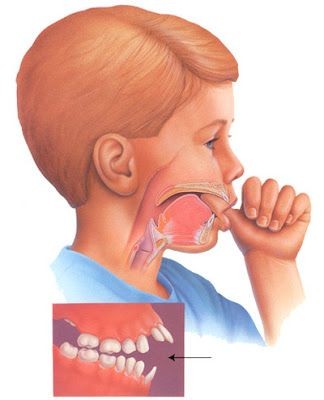As parents, we often find comfort in seeing our babies soothed by thumb sucking or a pacifier. These habits are natural and common in infants and toddlers. However, when they persist beyond a certain age, they may lead to dental or speech development issues. At Oral Medics Dental Clinic, we are here to help you understand when thumb sucking and pacifier use are harmless and when it’s time to intervene.
Why Do Children Suck Their Thumbs or Use Pacifiers?
Thumb sucking and pacifier use are natural reflexes for infants. These habits can:
- Help babies feel secure and calm
- Aid in falling asleep
- Provide comfort when they are anxious or tired
In fact, some babies even begin sucking their thumbs in the womb! This reflex is a normal part of infancy and early childhood development. It becomes a concern only when the habit continues beyond a certain age or begins to affect oral health.
When Does It Become a Problem?
Most children naturally stop sucking their thumbs or using pacifiers between the ages of 2 and 4. However, if the habit persists beyond this age, it can start to affect:
- Tooth Alignment
Continuous pressure from thumb sucking or pacifier use can lead to:
- Protruding front teeth (buck teeth)
- Open bite (when the upper and lower front teeth don’t meet)
- Crossbite or overbite
- Misaligned jaw or bite
- Speech Development
Prolonged sucking habits can affect the development of the mouth, leading to:
- Lisping
- Difficulty pronouncing certain sounds like “s” and “th”
- Delay in speech clarity
- Palate and Jaw Changes
A child’s palate (roof of the mouth) is soft and malleable. Extended pressure can narrow the palate, leading to:
- Crowded teeth
- Abnormal jaw growth
- Breathing or swallowing issues
At Oral Medics Dental Clinic, we often see cases where early intervention could have prevented the need for more complex orthodontic treatment later in life.
Thumb vs. Pacifier: Which Is Worse?
While both habits can cause similar issues, pacifiers are generally easier to manage. You can control when and how long a child uses a pacifier, and you can gradually phase it out. Thumbs, on the other hand, are always available — which makes breaking the habit more difficult.
Signs It’s Time to Stop
If you notice any of the following signs in your child beyond the age of 4, it’s time to consult your pediatric dentist:
- Protruding or misaligned teeth
- Difficulty speaking clearly
- A change in the shape of the jaw or mouth
- Continued thumb sucking during the day, not just at bedtime
How to Help Your Child Stop the Habit
Breaking a comforting habit takes time and patience. Here are proven strategies:
- Positive Reinforcement
- Praise your child when they don’t suck their thumb or use the pacifier
- Create a reward chart with stickers or small treats
- Celebrate milestones, like going a full day or week without the habit
- Set Limits Gradually
- Limit pacifier use to nap or bedtime only
- Slowly reduce time each week
- Introduce a “pacifier fairy” story for younger kids to encourage giving it up voluntarily
- Provide Alternatives for Comfort
- Introduce a cuddly toy or blanket
- Encourage hugs, stories, or calming music before bed
- Teach deep breathing or relaxation techniques for older children
- Identify Triggers
Some children suck their thumbs when they’re anxious, bored, or tired. Help them express emotions or redirect their energy with:
- Drawing or coloring
- Talking about feelings
- Gentle physical activities like yoga or stretching
- Use Gentle Reminders
- Place a bandage or soft glove on the thumb during sleep
- Avoid scolding — instead, gently remind your child of the goals you’ve set together
When to Seek Professional Help
If home efforts aren’t working, it may be time to consult with your child’s dentist. At Oral Medics Dental Clinic, we offer:
- Habit evaluation to determine if dental development is affected
- Custom-made habit-breaking appliances (like thumb guards or palatal crib appliances)
- Behavioral support and advice tailored to your child’s needs
Early dental visits are crucial. The American Dental Association recommends a first dental visit by age 1 or within 6 months of the first tooth eruption. These early visits allow us to track your child’s oral development and guide parents on healthy habits.
Frequently Asked Questions (FAQs)
Q: Will my child need braces because of thumb sucking?
If the habit stops before permanent teeth come in (around age 6–7), the chances of needing braces are lower. However, prolonged habits may increase the risk of orthodontic issues.
Q: Are pacifiers better than thumb sucking?
Yes, because they can be taken away. However, both habits should ideally stop by age 3 to prevent dental problems.
Q: Is thumb sucking ever harmful in babies under 2?
No, in fact, it’s a normal and self-soothing behavior for infants. Concerns arise only when it continues into preschool years.
Conclusion: Healthy Habits Start Early
Thumb sucking and pacifier use are normal in infants — but knowing when to step in makes all the difference. Monitoring your child’s habits and taking gentle steps to guide them away from prolonged sucking behaviors can ensure their oral development stays on track.
At Oral Medics Dental Clinic, we’re committed to providing compassionate, child-friendly care. Our pediatric dental experts are here to support your child’s oral health at every stage — from their first tooth to a confident, healthy smile.
Schedule your child’s dental check-up today at Oral Medics Dental Clinic and let us help you build the foundation for a lifetime of healthy smiles!
Call us now or book an appointment online.

